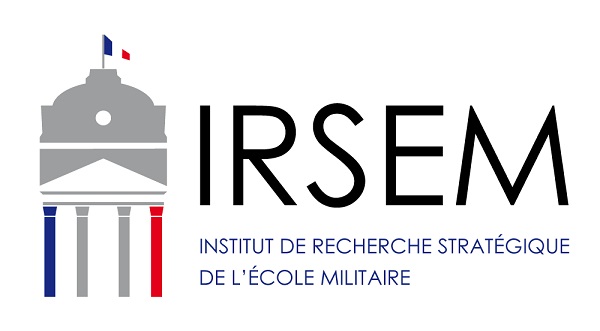Dowlnoad Strategic Brief No. 65
US Withdrawal and European Strategic Autonomy
Kyle Haynes
With Russia’s military being decimated in Ukraine and East Asia becoming the United States’ most important regional commitment, the US is likely to shift significant military resources away from Europe. This will create unprecedented opportunities for European strategic autonomy in the coming years.
The post-World War II period has seen recurring debates about the prospects for “European strategic autonomy.” Previous debates have often proven to be much ado about nothing. The US has retained a remarkably durable and robust military presence in Europe while its European allies have failed to stake out a truly autonomous foreign and security policy. Unlike previous episodes, however, there is a very real chance that Europe could emerge over the coming years as a more strategically autonomous actor, with greater responsibility for continental security and defense policy.
What is different compared to prior eras? In brief, the prospects for Europe’s strategic autonomy hinge on the United States’ approach to Europe. History shows that if the US maintains a strong enough presence to dominate the region, the incentives for European states to free ride on US protection are difficult to overcome. But for the first time since WWII, Europe is no longer the most strategically important region to the United States. With China emerging as the United States’ main peer security competitor, the Indo-Pacific theater taking on ever-greater global importance, and Russia’s military greatly weakened by the war in Ukraine, the US faces unprecedented incentives to shift significant resources away from Europe and into East Asia. This is likely to create uniquely strong opportunities and incentives for European states to forge a more autonomous foreign and defense policy in the coming years.
European Strategic Autonomy: A Recurring Debate. – Predictions of American withdrawal from Europe and the emergence of European strategic autonomy have come and gone at least three times since the end of WWII. Each time, these predictions were largely disproven by subsequent events.
First, after WWII, the United States sought to rebuild European economies through the Marshall Plan and, while still backstopping continental security through NATO, eventually promote an autonomous European defense capability. This approach quickly collapsed. Many important European states remained beset by political instability and economic stagnation. Soviet efforts to export revolution abroad were more sustained and believed to be dangerous than many initially thought. Major European powers were also unable to assume responsibility for defending Europe as they negotiated the dissolution of their empires abroad. Furthermore, despite the outbreak of the Korean War, Europe remained the most economically and politically important region to US security and prosperity. The US thus retained its dominant presence in Europe, and European autonomy remained a distant possibility.
Second, following the Vietnam War, the US initiated a far-reaching policy of strategic retrenchment under the guise of the “Nixon Doctrine.” Many Americans had become disillusioned with the US military’s role abroad, and a series of economic shocks highlighted the financial burden created by American defense commitments overseas. Nevertheless, the Nixon Doctrine reduced the US military presence only across Asia, and actually increased US forces in Europe. Indeed, the main purpose of the doctrine was to restore Europe to its rightful place as the central focus of American defense policy. Again, the US remained fully engaged in Europe, and predictions of greater European autonomy eventually foundered.
Finally, after the Soviet Union’s collapse, American leaders sought to collect a “peace dividend” by cutting defense spending and pulling back costly military deployments from abroad. The US did just this, radically reducing the size of its onshore deployments around the globe, including in Europe. But given the lack of any major conventional threats facing the continent, even this reduced American presence was enough to allow European allies to forgo significant military buildups. The US therefore remained the region’s dominant military force.
Is there any reason to believe that recent talk of European strategic autonomy is different? Is the end of the “global war on terror” likely to produce a significant strategic shift in ways that the end of the Vietnam War or Cold War did not? While far from certain, there are important differences between today and prior episodes that suggest a different outcome is possible.
Will this time be Different? – The key difference today concerns Europe’s importance to the United States. Europe consistently ranked as the most strategically and economically important region to the United States through the 20th century. Europe was widely viewed as the central theater of the Cold War, and even in the 1990s remained of paramount importance to US defense policy as NATO expansion and military interventions in the Balkans took center stage.
Europe’s centrality prevented the US from pursuing any regional withdrawal that would undercut its ability to dominate regional security. European political leaders therefore had little incentive to pay the substantial costs necessary to provide fully for their own defense and articulate a truly independent foreign and defense policy. The costs of generating and maintaining the military capabilities necessary to achieve strategic autonomy are substantial. And given the United States’ persistent willingness to shoulder these costs itself, European states have understandably chosen to free ride on American protection for decades. In short, the United States’ decision to take on a leading role in European security has historically precluded the establishment of European strategic autonomy.
The current situation is different because the US may be more willing to draw down its military presence in Europe than in the past. There are two key reasons for this: Europe’s reduced strategic and economic importance to the United States, and Russia’s drastically reduced military capabilities. Collectively, these factors significantly reduce the costs and risks the US will expect to incur from drawing down its presence in Europe. Its allies are more capable of containing the threat posed by a greatly weakened Russia, and even if that capability were in doubt, Europe’s declining importance would simply make it less damaging to the US than in the past if the region’s security order were severely undermined.
In international politics, the importance of a state’s foreign policy interests are necessarily judged relative to one another. An increase in one region’s importance means a decrease in another’s. Europe’s declining importance to the US is due to Asia and the Indo-Pacific’s growing importance. Aggregate GDP across the Asia-Pacific has skyrocketed in recent decades and now nearly doubles that of the European Union. Its population is nearly six times the EU’s. The US military currently labels the Indo-Pacific as its “priority theater.” The Indo-Pacific is nearly always listed first when US defense agencies discuss regional goals and priorities.
Furthermore, this increasingly important theater is the one most menaced by China’s growth and provocative behavior, which has led the US to identify China as its main great power competitor. China is consistently identified as the “pacing threat” that guides US defense spending and acquisition. The most recent US National Security Strategy states that China “presents the most consequential and systemic challenge” to US interests. Combined, these two forces are causing the US to place a far greater emphasis on the Asia-Pacific region, which necessarily downgrades Europe in its strategic calculations.
This is a crucial difference between the past and present. Europe is simply less important to the US today than it was during the 20th century. Furthermore, Russia, the primary security threat facing Europe, is currently being economically, military, and demographically devastated by its brutal and unjust invasion of Ukraine. Once the war ends, a significantly reduced US military presence may suffice to deter Russian aggression against NATO members.
Collectively, these factors may require the US to eventually bolster its presence in the Indo-Pacific theater. Given budgetary constraints, any increase in resources in East Asia will require reductions elsewhere, and Europe looks a likely candidate for such reductions. Significant US retrenchment from Europe, in turn, will facilitate the development of a truly independent European foreign and defense policy. The coming years may therefore offer a unique opportunity to establish European strategic autonomy as China’s rise and the growing strategic and economic importance of the Indo-Pacific push the United States to reduce its role in Europe and refocus eastward.
Kyle Haynes is an Associate Professor in the Department of Political Science at Purdue University in West Lafayette, Indiana, USA, and a recent visiting researcher at IRSEM.
Contact: kylehaynes@purdue.edu



